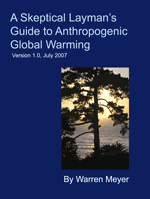My Annual Letter to Princeton Giving -- Exhausted with the New Scholasticism
In what has become something of an annual tradition, here is this year's response to Princeton's annual giving request
My short answer is that I am not interested in donating to the University.
What follows is the longer answer. I probably should have found a previous year’s version of this letter that was better organized and sent that again, but lacking access to my files here are a few thoughts.
When I was at Princeton, the University used to reject the idea that it was a “trade school” whose sole mission was to teach future professionals the details of their craft. Instead, the University insisted its mission was to create better citizens – and I bought into that when I was there in the 80’s. But I no longer believe this is true. I don’t see many graduates of any Ivy League school participating in our polity in a reasoned and mature manner or bringing to bear a sophisticated understanding of history, economics, and political theory to public discourse. Heck, in many cases I don’t even see them acting like adults.
I suppose it will be easy to write this off to being more of the same from supporters of the current US President, except that I am not a supporter of the current Administration and have been sending these same concerns in letters to both the current and former Princeton presidents.
A partial list of these concerns include:
- Reduction of standards in admissions, grading, and even the seriousness and rigor of the academic material itself. To some extent the meta problem is the complete collapse of K-12 education (and more narrowly K-5 education) but rather than highlight and push back against falling levels of preparation, Princeton has joined the parade to mediocrity and lowered its own standards to paper over the problem.
- Hostility to certain races and ethnic groups that became so bad it caused me to quit participating in Princeton recruiting in 2017 because I could no longer look qualified Asian candidates in the eye and tell them honestly they had a chance
- Lack of intellectual diversity in the faculty and administration. I find it astonishing that a university – which is primarily an institution of ideas – would focus primarily on diversity of skin pigment and reproductive plumbing rather than diversity of ideas. Universities like Princeton refuse to admit that a diversity of ideas and political outlooks/assumptions might even be important. Such a monoculture is never healthy.
- Rewarding virtue signaling over rational debate combined with a rejection of reason in favor of some sort of emotional calculus. Not only has the university developed a monoculture, but it is one based on a post-modern, anti-enlightenment, anti-rational philosophy that ironically rejects almost every principle on which modern universities were founded. It is almost like a return to medieval scholasticism, where students are taught to torture facts into defined narratives and dogmas.
- Emphasis on promoting activism over other paths to living a productive life, an emphasis that starts in the admissions process
- Releasing graduates with no comprehensive understanding of history or economics but with fabulous AI- and consultant-polished application essays and theses based on personal lived experience. Why are schools training students to wallow in their own experience when their mission is supposed to be (or used to be) about broadening knowledge and awareness – exactly the opposite? Is this education or mental health therapy? The one thing I did NOT need Princeton for was to contextualize how much it sucked to be a 16-year-old academically focused student at my high school.
- Making all the personal political, with 100% litmus test scores necessary to avoid exclusion. I remember at Princeton we had a table of 8-12 shifting members (“creatively called ‘the table’”) who ate together every day for two years. The group had everything from Christian Conservatives to Marxists and we argued about everything, but we have all been friends for life.
- Lack of any sane control on administrative spending, which has caused costs to skyrocket. I know that due to the generosity of Princeton alumni, these costs are manageable, but just because the school can afford this administrative bloat does not mean that it should. I would never donate to a charity where more than half the money goes to administrative overhead.
All this ignores more recent issues with which I am less familiar, such as the horrifying return of overt antisemitism and student use of AI to thwart both learning objectives and the honor code. Princeton’s response to both of these seem puzzlingly slow, but I have lost some of my connections on campus and don’t want to speak from ignorance.
When I graduated from Princeton in the 1980s, I would have gladly hired any 10 random people in my class for a corporate startup (if I had such a thing at the time). After 2003, when I did own my own large company of about 1600 employees, I would never have hired an Ivy League grad. Many of my managers had no degree at all (up to my COO and director of HR) and if we needed a college grad we would look for a scrappy young community college student long before someone from the Ivy League, even without considering the difference in price. As a minimum, the local kid was less likely to hold a sit-in in my office.
I would love someday to support higher education again and would happily fund any institution that was demonstrably taking a shot at even some of these issues.
